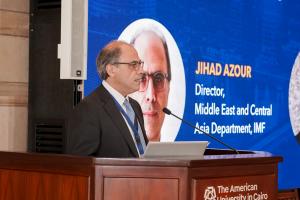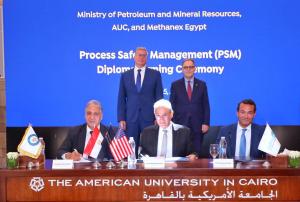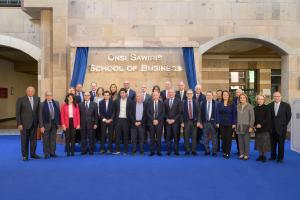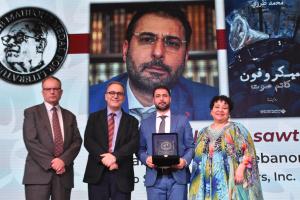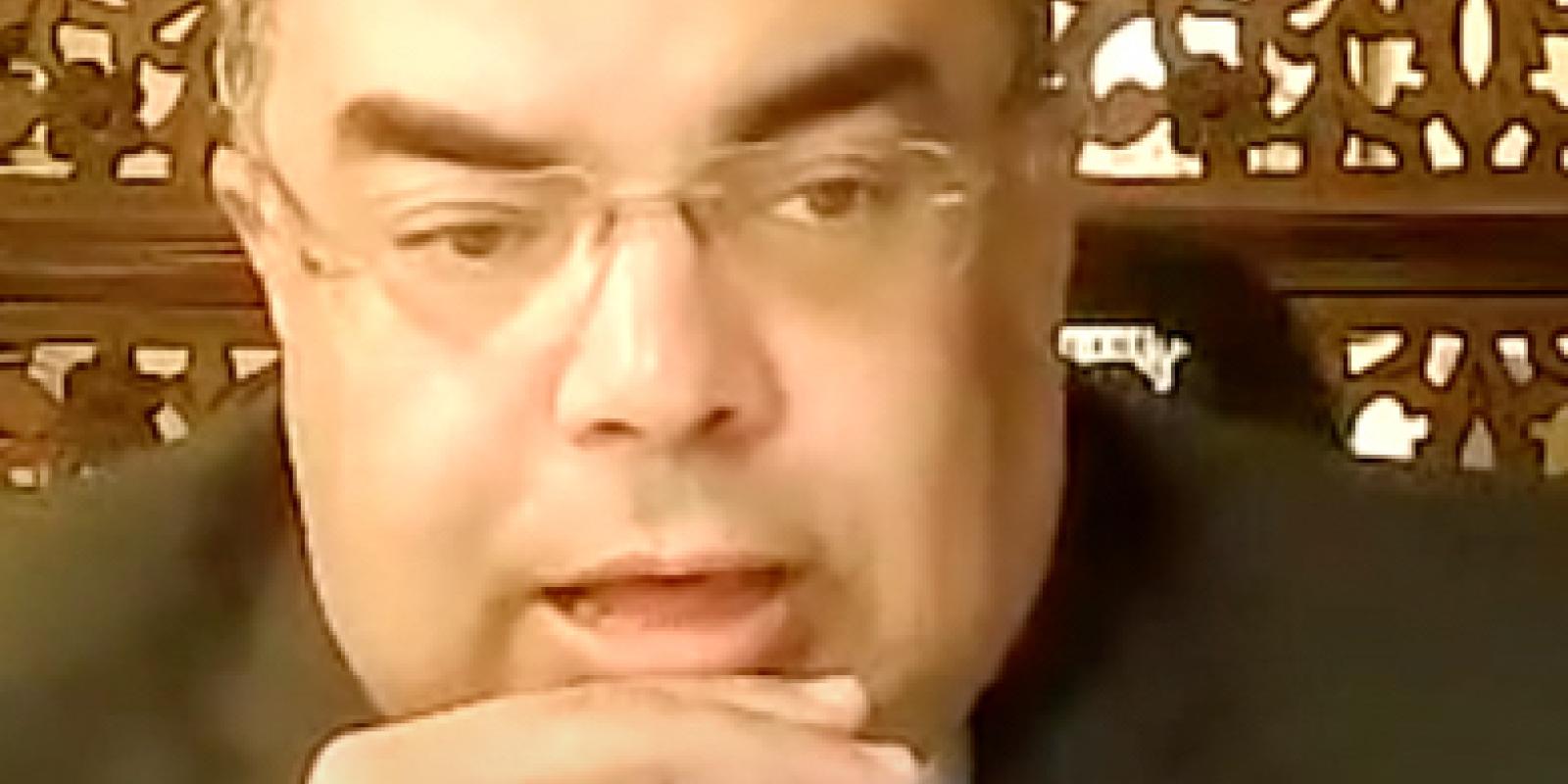
AUC Launches Climate Change Initiative
Launched last week, AUC’s Climate Change Initiative capitalizes on AUC’s contributions to national and international efforts in tackling one of the greatest challenges of our time. The initiative includes research, student activities, teaching and learning, outreach, tracking and reducing our carbon footprint, writing school textbooks on climate change and providing climate change solutions in specific contexts within the country.
“Our aim in this initiative is to reinforce AUC’s role as an active academic hub on climate change and sustainable development in Egypt and the region, as well as an active contributor to global efforts addressing climate change challenges,” said President Ahmad Dallal. “Of course, COP27, hosted in Egypt in November, provides an incentive to catalyze AUC’s climate change initiative.”
Dallal outlined the initiative’s five main areas of focus that are fully aligned with national and regional climate change and sustainability priorities:
- Water-related issues
- Green architecture and sustainable urban development
- Green finance
- Global health
- Energy transition
These areas of focus also overlap with a number of “cross-cutting issues” ––adaptation to climate change, resilience of communities, mitigation measures, education and a just transition –– that are relevant to Asia and the region. “We encourage a multidisciplinary approach in addressing challenges, including policy, regulatory frameworks, financing, scientific research and social science aspects,” said Dallal.
UN Climate Change High-Level Champion for Egypt and Executive Director of the International Monetary Fund Mahmoud Mohieldin, who was the keynote speaker at the event, highlighted five distinctive features of COP27, which AUC will participate in next fall:
- A holistic approach to climate change
“We cannot ignore poverty, hunger, job creation and an inclusive approach to the whole [climate change] agenda, including the impact of climate change on children, youth and women."
- Implementation of previous promises outlined in the climate change agenda and action plan
“We don’t need new frameworks; we just need to apply what we have. If there is a good idea, let’s projectize it. You [AUC] have good ideas, and you have been teaching about them, so [the focus now is] how to apply them on your scale, with the hope that this could be scaled up or replicated somewhere else.”
- For the first time in the history of COPs, there is an alignment between the COP agenda, G13 and the rest of the SDGs [UN Sustainable Development Goals], with five major events to correlate the promise of finance coming from different institutions with the pipeline of projects, especially those focusing on mitigation, decarbonization and race to zero.
“This is a very practical approach based on a country-platform design, with five regional roundtables [across the world] – and I’m inviting you to participate in any capacity you wish. … It’s not just about Egypt and the local community. It’s about the region, Arab countries, the Mediterranean, Africa and beyond.”
- Localization (bottom-up approach): For the first time, Egypt’s 27 governorates will be participating through their big, small and medium enterprises, startups, as well as women-led community development initiatives in a two-month competition to choose the project that offers the smartest and greenest solutions, after which a team of national winners will be selected.
“It’s not about the competition; it’s about [showcasing] the talents and skills in the governorates, and it’s a chance to demonstrate what they’re doing. … It is customary for rich countries to host big conferences to be attended by 30,000 plus participants, [including] heads of state, but ordinary people would always wonder, ‘What's in it for us? Why do we have this conference?’ And this is legitimate.”
- Finance through partnerships, investments, international financial institutions, as well as public and private sector funding
“Without finance and investments, without the resources available to us –– not just financial resources, but technology and knowledge [as well] – nothing will really progress, and many of these ideas may end up with frustration. There will be some serious discussion about [funding] opportunities."
